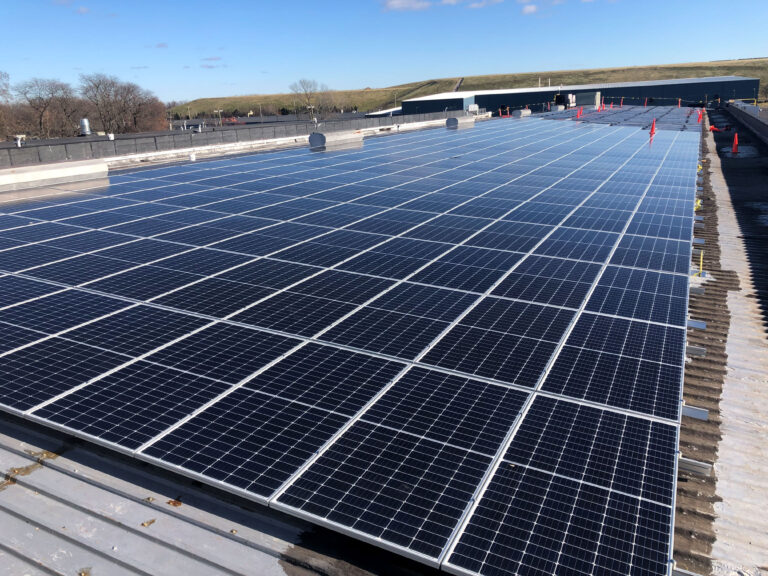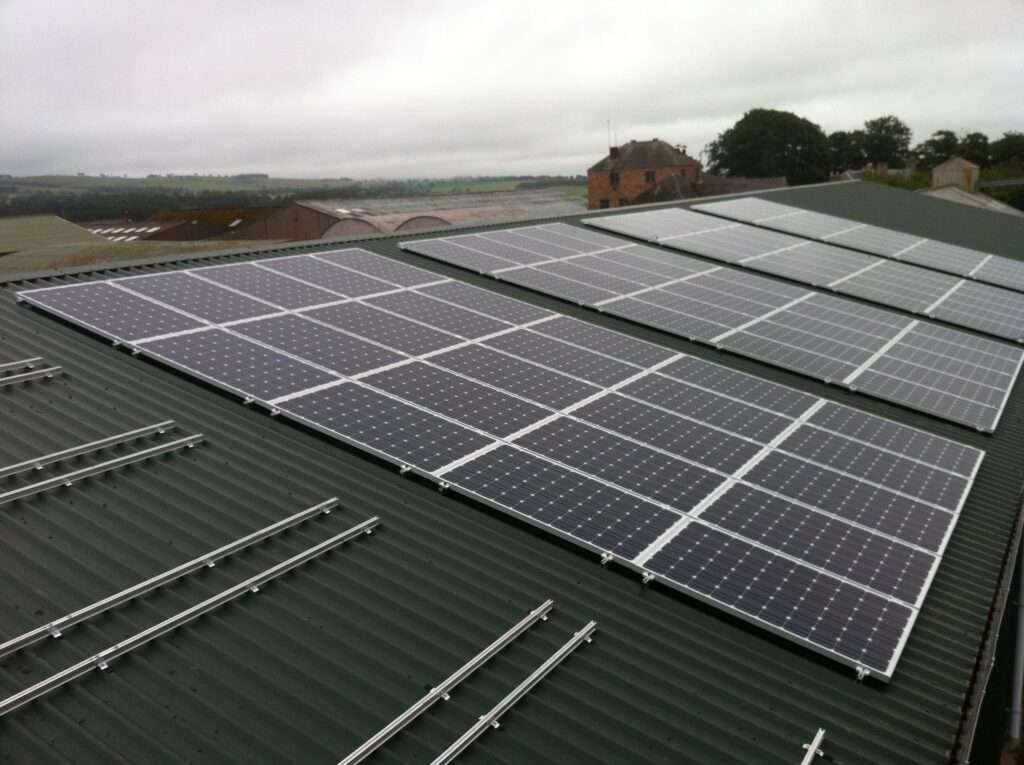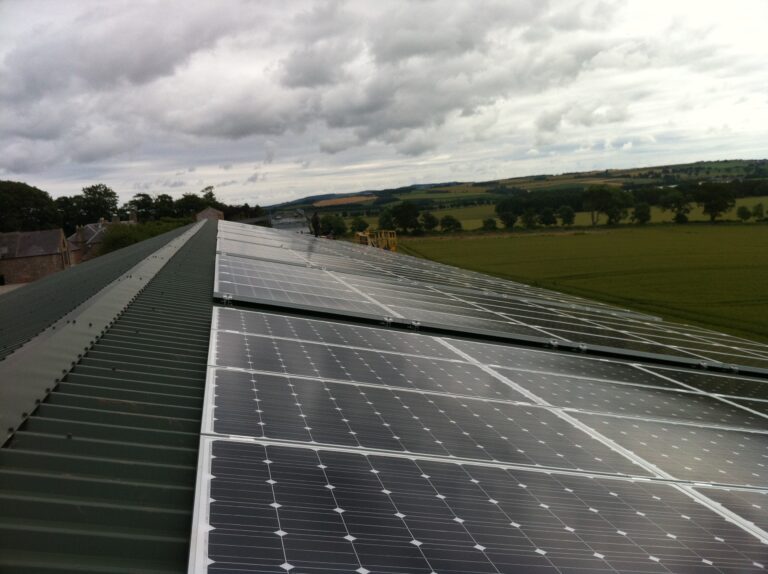Revolutionising Solar and Farming: From Robotics to Renewable Energy Storage
In today’s agricultural landscape, the drive for efficiency and sustainability has never been stronger with solar and farming at its core. Rising food demand, increased operational costs, and the need to meet carbon reduction targets are pushing farms to implement innovative solutions.
Emerging technologies, from robotics in food processing to solar power for farms with battery energy storage, offer a promising path toward sustainable, high-energy farming. Here’s how these advancements are helping farms streamline operations, improve productivity, and reduce environmental impact.

Solar Panels on Farm Buildings - Advanced Storage Solutions for Produce
One of the most energy intensive aspects of farming is produce storage, where refrigeration and controlled temperature systems run nonstop to preserve freshness. Proper storage solutions not only reduce food waste but also retain the nutritional value of produce for consumers. Advanced storage techniques, like controlled atmosphere storage, involve regulating oxygen, carbon dioxide, and humidity levels to slow down ripening, thereby extending produce shelf life.
Farms are now adopting solar panels with battery storage to power their storage facilities sustainably. Solar power harnessed during daylight hours is stored in Battery Energy Storage Systems (BESS), allowing farms to run energy intensive cooling and storage operations even during nighttime.
This integration of solar panels on farm buildings provides farms with a grid tied solar system power source that significantly reduces electricity costs and ensures a reliable energy supply.
Solar Power for Farms Enhancing Robotics in Feeding, Milking, and Processing
Automation has reshaped many facets of farming, allowing for increased efficiency, quality control, and animal welfare:
Feeding Robots:
Automated systems streamline the feeding process, reducing labor costs and ensuring livestock receive consistent nutrition. These robots use sensors to monitor the dietary needs of animals, automatically adjusting feed mixes for optimal health and productivity.
Milking Robots:
Automated milking stations (AMS) boost milk production, reduce labor associated with milking, and maintain high milk quality standards overall.
Food Processing and Packaging Robots:
In produce sorting, packaging, and labeling, robotics deliver precision and speed. For example, robotic arms can package delicate items like berries without bruising, ensuring higher quality products for consumers.
Using robotic technology with solar power for farms in these farming operations reduces the physical strain on workers, boosts productivity, and generates valuable data for managing feeding schedules, monitoring livestock health, and boosting operational efficiency.

Utilisation of solar power for farms through solar panels on farmland and farm buildings is an increasingly efficient and practical solution. Solar panel installations reduce reliance on grid power and significantly cut down energy expenses, aligning with both economic and sustainability goals.
Here’s how solar farm battery storage can change high-energy farming operations:
✅ Solar Power Generation: Solar panels capture sunlight to generate renewable energy for farms, which is especially valuable in operations requiring high power demands usage for heating, cooling, and lighting.
✅ Battery Energy Storage Systems (BESS): BESS allows farms to store solar energy generated during peak sunlight hours for use when solar production is lower. This stored energy can power storage facilities, feeding systems, or the entire farm during night hours, reducing dependency on the grid and increasing overall efficiency of the photovoltaic system.
✅ Cost and Carbon Reduction: By using solar energy coupled with battery storage, farms can lower electricity bills and reduce their carbon footprint. BESS provides a reliable energy reserve, especially useful during high demand periods, reducing peak energy charges and ensuring a consistent power supply.
This combination of solar on farmland and BESS brings farms closer to carbon neutrality and allows for scalable operations that aren’t constrained by the grid, helping farms expand sustainably.
Grants and Financial Support for Solar on Farmland in the UK
Transitioning to advanced technologies in agriculture often requires significant investment, but UK farmers have access to grants and funding programs that can help offset these costs. Here are some key programs supporting solar power for farms and innovation in farming:
1. Countryside Stewardship Grants:
This government grant provides funding for UK farmers to assist with environmental management, including solar panel projects on farmland and farm buildings.
2. Farming Transformation Fund:
Aimed at improving productivity and sustainability, this fund supports investments in energy efficient and innovative systems, including solar panels with battery storage and advanced robotic technology.
3. Energy Entrepreneurs Fund:
This initiative encourages the adoption of low carbon technologies, offering financial support for solar installations and battery storage solutions for farms aiming to go green.
4. Sustainable Farming Incentive:
As part of the UK’s Environmental Land Management scheme, this program offers support for practices that contribute to sustainability, including energy efficient systems and technologies that reduce emissions.
5. The Clean Growth Fund:
Focused on carbon reduction technologies, this fund supports farms investing in both renewable energy solutions and robotics to lower overall emissions and enhance sustainability.
By leveraging these grants, farms can transition to advanced, sustainable practices without shouldering the full cost of technology upgrades.

The Future of Solar and Farming: Embracing Renewable Energy and Automation
The combination of solar technology, robotics, and advanced storage solutions is transforming farming into a more efficient and sustainable industry.
These technologies not only bolster productivity but also provide critical insights into optimising farm operations, reducing waste, and advancing towards carbon neutrality. Solar power for farms is a key part of this transition, allowing energy independence and cost savings while meeting environmental goals.
For UK farmers, these technological advancements present exciting opportunities to build a sustainable, profitable future in agriculture. With the right balance of financial support, innovation, and commitment to sustainability, high-energy farming can meet global food demands and safeguard the environment for generations to come.
